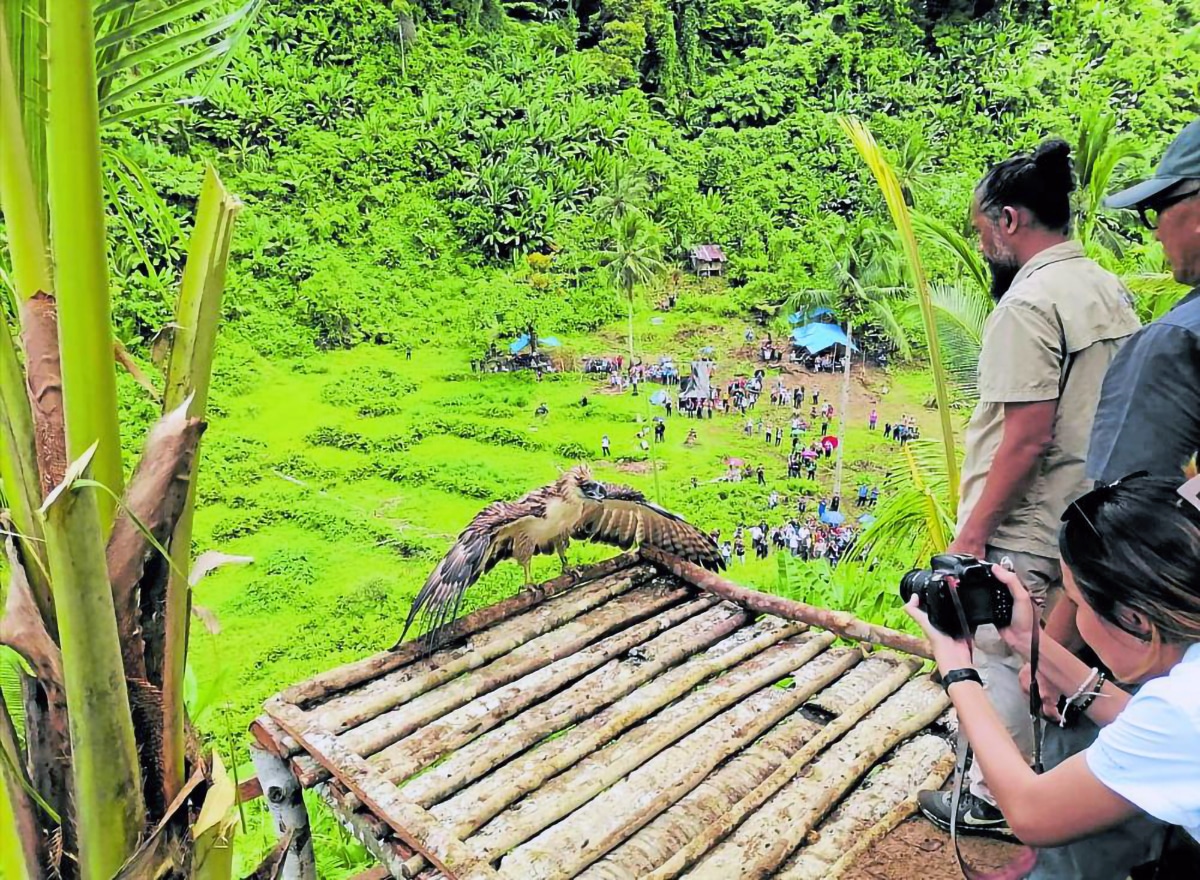Philippine Eagle pair set free in forests of Leyte

HOPE FOR NATIONAL BIRD “Carlito,” a female Philippine eagle, perches on a platform before flying into the mountains of Burauen, Leyte, on Friday, in an ambitious effort by conservationists to repopulate the province’s forests with the national bird. —JOSELLE R. BADILLA
BURAUEN, LEYTE — Conservationists made history here with the release of a Philippine eagle pair on Friday in a bold effort of trying to repopulate the forests of Leyte province with the national bird.
Witnessed by Environment Secretary Maria Antonia Yulo-Loyzaga, eagles “Uswag,” a male, and “Carlito,” a female, were set free in Barangay Kagbana, at the edge of the forest of the Marabong watershed.
First to be released to the wild was Carlito, a 6-year-old juvenile raptor. When the eye hood was taken, she was a bit disoriented and distracted by the people around her, strongly perching on the releasing platform. Outbalanced for a few seconds, she stared at the crowd around the platform and flew seconds later.
Carlito landed on a coconut tree, paused, and started preening. She stayed on the tree for 30 minutes before soaring toward the mountains.
Three-year-old Uswag was released around 12:07 p.m. and flew straight to the trees in front of him. He was perched there for over an hour before soaring away.
Article continues after this advertisementDr. Jayson Ibañez, Philippine Eagle Foundation (PEF) director for operations, said they were expecting Uswag and Carlito to pioneer the repopulation of raptors in Leyte. Eagles were last seen here in 2013, just before the devastation wrought by Supertyphoon “Yolanda.”
Article continues after this advertisementUswag and Carlito were brought from the Philippine Eagle Center in Davao City on June 11, some 600 kilometers from here, and transported via a Philippine Air Force plane. Both underwent rehabilitation in the Davao facility following their respective rescue — Uswag in December 2023 and Carlito in 2022.
READ: Philippine eagle family seen in Surigao del Sur forests
It was the first experience in the country of translocating raptors and reintroducing them into another habitat.
From June 11 until their release, Uswag and Carlito underwent acclimatization, placed inside separate cages in a hack site here, and survived by being fed live rabbits.
At 5 a.m. on Friday, Dr. Bayani Vandenbroeck, PEF volunteer veterinarian, performed a thorough health exam of the two eagles.
Biologists Rowell Taraya, Dominic Tadena, and Julia Lynne Allong fitted each eagle with a miniature solar-powered transmitter to track their movement.
“There’s a lot of adrenaline and excitement, although at the same time there’s a sense of anxiety because now that they are in the wild, we no longer have control over their fate, the circumstances they will face,” said Ibañez.
“We are hoping [that] once they are sexually mature, they will find each other,” he added.